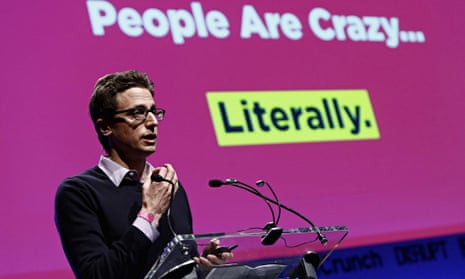A truth is dawning on media owners (or in many cases it has dawned, but they don’t like to talk about it). Publishing is over. Obviously this isn’t true in its purest sense; publishing is actually flourishing, just not for publishers. As Facebook last week extended the reach of its instant articles to anyone, as Google invests in making news articles load lightning fast, as virtual reality can be produced by a £200 kit, it is fair to say we have more opportunity today to put out remarkable works of fact and fiction to the world than ever before.
However, defining decisions about formats and revenue are dictated at platform level, Facebook and others, or at carrier level, or even, in the case of Apple’s stance against the FBI, at device level. The biggest news for media owners in the UK last week was that a phone company, Three, is introducing adblocking across its network. Essentially this means that if you have a Three mobile phone, you will no longer see ads on the articles and pages you look at on your phone. Mobile advertising is still a very small revenue stream for most publishers, but in many cases it is the only one showing any growth. Phone companies such as Three see an opportunity to make more money and retain customers by purging annoying ads or making advertisers pay for the data consumption.
Unless and until this is killed by the European regulators, it threatens to snuff out the lifeline of mobile advertising for digital publishers. Last week we also saw China, which is a hostile media market owing to censorship, announce that it would effectively ban any non-Chinese owned media from operating inside the country. India, in a very different way, asserted its own right to choose a separate path for its communications future when it ruled out Facebook’s Free Basics. Regulation is increasingly being seen as the only way that any plurality or regional difference will be exerted over a media market which tolerates the micro, favours the mega and rolls over most entities in between.
The mobile advertising market is already effectively owned by Facebook, so with the stick of adblocking and the carrot of instant articles publishers are finding themselves surrendering what were previously the most important parts of their businesses.
Last week I spoke to numerous publishers who were largely though not exclusively in agreement on one thing: “We know that the business of packaging and publishing by ourselves is over, the question for everyone now is what next?”, said one. Another noted “we look at distribution for the social platforms and they are doing really well, we look at the opportunities for creation and they are plentiful, the piece in the middle, where traditional publishers and broadcasters sit, that doesn’t look so great.”
The prognostication game has hitherto been about the speed at which newspapers will go out of print. Now it shifts up a gear to the more pressing question of which companies will start to jettison websites and other digital infrastructure accumulated in the past two decades. Having a legacy business configured around a website is now almost as much of a headache as the rumbling printing press, fuelled by paper and money. It is likely we will start to see studio or agency models emerge where publishing models once were, trying to create value around relationships and services rather than packages and products.
In a lengthy article praising publisher BuzzFeed as being the “world’s most innovative company” last week, its founder Jonah Peretti used Paramount Pictures as an example of a company he draw inspiration from. It was he said, a demonstration of how owning all the elements of the businesses, from cast to crew to theatres, fuelled creative success. The new paradigm however raises the question of whether that aspiration to scale can really ever exist again for a purely creative company. Part of the answer is already obvious, even the BuzzFeeds and BBCs of the world will struggle to gain leverage against gatekeepers, be they regulators, phone companies or distribution channels.
As the pipes of distribution have merged with the advertising sales functions, the publishing tools and even the customer relations and data, the best a traditional publisher can hope for is that they will be favoured by the distributors or that they can build value separately. This is most likely to be through relationships with either advertisers or their own customers, hence the most closely watched models are those based on becoming a new type of advertising agency (BuzzFeed and Vice) or subscriptions based on brand loyalty (the New York Times).
Given the disorienting speed of change and a dozen announcements a week that potentially upend your business model, maybe publishing is not in fact dead, but like the proverbial Monty Python parrot, lying on the floor of its cage, eyes screwed tightly shut.

